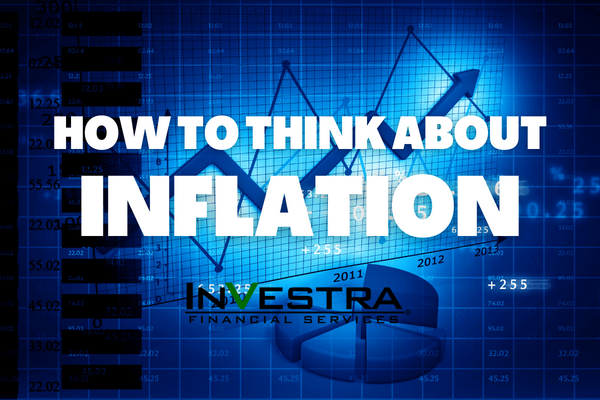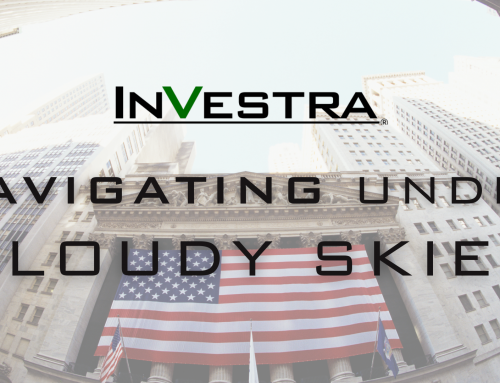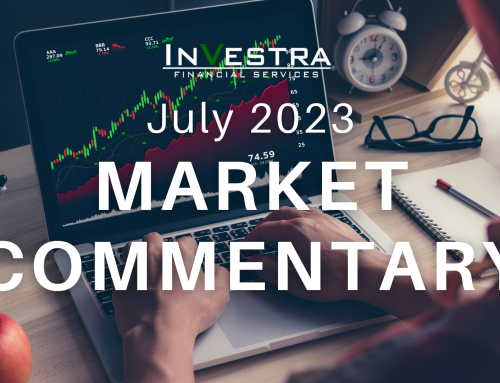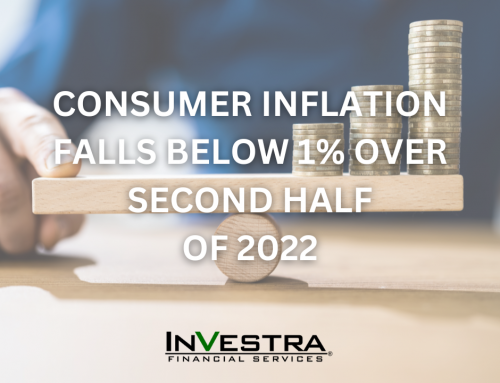Last week,The Federal Reserve Bank of Kansas City hosted its annual Jackson Hole Economic Symposium, where central bankers, policymakers, academics, and economists from around the world had much to discuss about inflation, interest rates, and growth. As usual, InVestra is here to offer some context.
LPL’s Chief Economist, Jeffrey Roach, said real personal spending rose 0.2% in July, which will be a positive indicator for Q3 economic growth, BUT consumers will need a higher growth rate in personal incomes for the real economy to grow. Not that personal income didn’t grow at all in July, but it was only up 4.6% from last year, which doesn’t keep up with inflation (the Personal Consumption Expenditure deflator was up 6.3% from a year ago). We still have two more months to go for Q3 and the economy is on track for stability, so the domestic economy can still scrape up some positive economic growth this year. Any sighs of relief could be premature, but at least inflation rates are decelerating. As Federal Open Market (FOMC) committee members say, there’s more work to be done.
Fed Chair Jerome Powell didn’t sugar coat anything in his speech when he highlighted the fact that the economy is going to have to experience some ‘growing pains’ to get inflation closer to that goal of 2%, and it was clear that he doesn’t want to repeat the same mistakes they made in the 60s and 70s which resulted in inflation becoming ‘unhinged,’ meaning prices and inflation became too influential in spending and investment decisions. He acknowledged that the Fed can only impact aggregate demand, and that’s why the ‘pain’ has to come thru the employment market. He said the words “price stability” nine times, saying much about how it’s the foundation for a strong labor market. Basically, fighting inflation is currently more important than supporting growth.
According to LPL’s Chief Economist, Jeffrey Roach, the economy is likely past peak inflation, as the yearly pace of inflation in July decelerated for both total inflation and core inflation. (LPL Research, August 26th, 2022) “For some demographics, the pain from a quickening pace of food inflation will be particularly acute. One variable we highlighted several months ago is the New York Federal Reserve’s supply chain pressure gauge. As supply bottlenecks improved in recent months, we expected inflation metrics would eventually ease as transportation and logistics companies worked through global supply constraints and consumers are finally seeing the first fruits of better supply chains. Looking ahead, inflation will likely cool throughout the remainder of this year.”
Don’t breathe a sigh of relief yet, but be comforted that at least inflation rates are decelerating. He concluded that they don’t see rates getting above 4% and that equities need to give back some of this summer’s gains, and the same goes for the U.S. dollar. After these comments at Jackson Hole, the European Central Bank’s policy meeting in September will be something we’ll be eager to tune in to.








